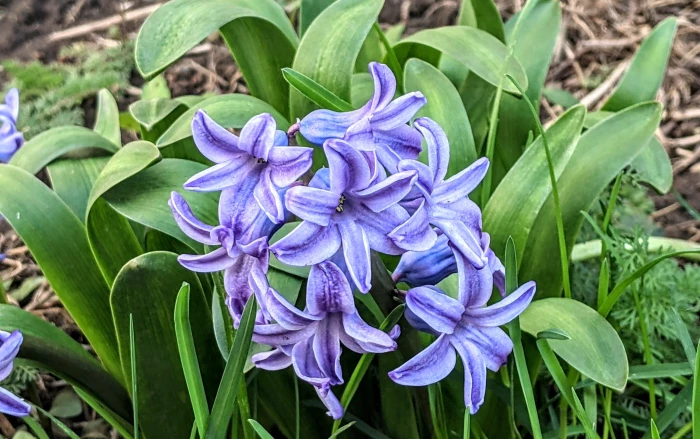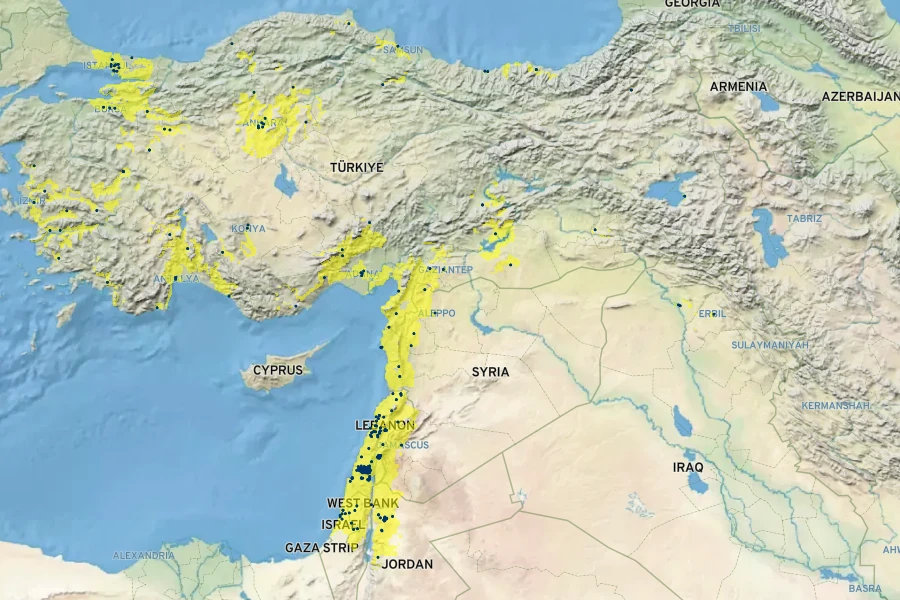Garden Hyacinth
/
(Hyacinthus orientalis)
Garden Hyacinth (Hyacinthus orientalis)
/

Steve DeGrace
CC BY 4.0
Image By:
Steve DeGrace
Recorded By:
Copyright:
CC BY 4.0
Copyright Notice:
Photo by: Steve DeGrace | License Type: CC BY 4.0 | License URL: http://creativecommons.org/licenses/by/4.0/ | Rights Holder: Steve DeGrace | Publisher: iNaturalist | Date Created: 2021-04-18T12:27:19-07:00 |





















































Summary
Hyacinthus orientalis, commonly known as Garden Hyacinth, is a deciduous perennial herb native to the Eastern Mediterranean, specifically to rocky areas and scrubland of the region. It is a bulbous plant with a bulb diameter of 3–7 cm. The Garden Hyacinth typically blooms in early spring, showcasing dense spikes of strongly fragrant flowers. Its natural flowering time is early spring, but it can be forced to flower at Christmas by manipulating light and temperature conditions. The plant reaches a height of 6-12 inches (15-30 cm) and is known for its upright spikes of bell-shaped flowers.
Garden Hyacinth is highly valued for its clusters of brightly colored, intensely fragrant flowers that come in shades of blue, white, pale yellow, pink, red, or purple. With over 2,000 cultivars, many have been bred for denser flower spikes, with some bearing 40–100 or more flowers each. It is commonly used in borders, pots, and as cut flowers due to its early bloom time and strong scent. Garden Hyacinth prefers full sun to part shade and well-drained soil that is not too dry. It requires a period of winter dormancy and thrives in cold-weather regions. While generally easy to maintain, it can be susceptible to bulb rot if planted in poorly drained soils.CC BY-SA 4.0
Garden Hyacinth is highly valued for its clusters of brightly colored, intensely fragrant flowers that come in shades of blue, white, pale yellow, pink, red, or purple. With over 2,000 cultivars, many have been bred for denser flower spikes, with some bearing 40–100 or more flowers each. It is commonly used in borders, pots, and as cut flowers due to its early bloom time and strong scent. Garden Hyacinth prefers full sun to part shade and well-drained soil that is not too dry. It requires a period of winter dormancy and thrives in cold-weather regions. While generally easy to maintain, it can be susceptible to bulb rot if planted in poorly drained soils.CC BY-SA 4.0
Plant Description
- Plant Type: Herb
- Height: 0.5-1 feet
- Width: 0.3-0.5 feet
- Growth Rate: Slow
- Flower Color: Blue, Orange, Pink, Purple, Red, White, Yellow
- Flowering Season: Spring
- Leaf Retention: Deciduous
Growth Requirements
- Sun: Full Sun, Part Shade
- Drainage: Medium
Common Uses
Bee Garden, Border Plant, Deer Resistant, Drought Tolerant, Fragrant, Low Maintenance, Potted Plant, Rabbit Resistant, Rock Garden, Salt Tolerant, Showy Flowers
Natural Habitat
Rocky areas and scrubland of the Eastern Mediterranean
Other Names
Common Names: Common Hyacinth, Dutch Hyacinth, Hyacinth, Hyazinthe, Garten-Hyazinthe, Jacinto, Jacinthe, Giacinto, Hyacint, Trädgårdshyacint, Common Hyacinth
Scientific Names: Hyacinthus orientalis, Scilla coronaria
GBIF Accepted Name: Hyacinthus orientalis L.
